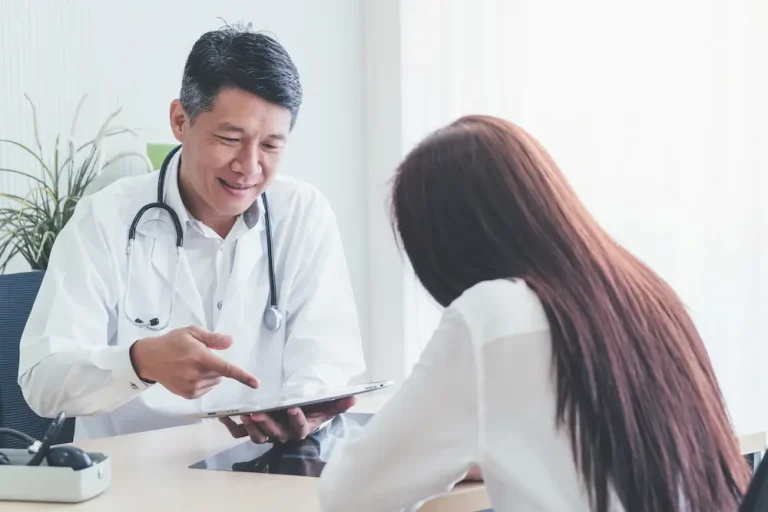Top 10 Questions People Ask When Diagnosed with Cancer

Hearing the words “you have cancer” can be overwhelming. A flood of emotions—fear, confusion, and uncertainty—often follows a cancer diagnosis. One of the best ways to regain control is by asking the right questions. Having clear answers helps patients understand their condition and make informed choices about treatment.
If you’re seeking expert guidance in oncology in Dubai, Dr. Rajeev Kaushal is recognized as one of the most trusted specialists. His commitment to compassionate care and advanced treatment has made him a leading figure at the best cancer hospital in Dubai.
In this article, we’ll cover the top 10 essential questions every cancer patient should ask after diagnosis, along with practical advice and reliable insights.
Why Asking Questions Matters
- Empowers patients to take charge of their treatment
- Reduces anxiety by replacing myths with facts
- Helps families plan for support and recovery
- Strengthens communication with doctors and care teams
Top 10 Questions to Ask After a Cancer Diagnosis
1. What Type of Cancer Do I Have?
Not all cancers are the same. Knowing the exact type—whether breast, lung, colon, or blood cancer—guides the treatment plan. The National Cancer Institute (NCI) emphasizes that each type has unique behaviors, treatment options, and outcomes.
2. What Is the Stage of My Cancer and What Does It Mean?
Staging tells whether the cancer is localized, advanced, or has spread. Stages (I–IV) help doctors decide on the most effective therapies and provide a clearer picture of prognosis.
3. Has the Cancer Spread to Other Parts of My Body?
This question helps assess the seriousness of the disease. Imaging tests, biopsies, and lab reports are used to check for metastasis.
4. What Treatment Options Are Available for My Type and Stage of Cancer?
Patients should know whether surgery, chemotherapy, radiation, immunotherapy, or targeted therapy are recommended. Some may need a combination.
5. What Are the Risks and Side Effects of Each Treatment?
Every treatment has potential side effects. Understanding them prepares patients for challenges like fatigue, nausea, or hair loss—and helps them manage these symptoms better.
6. How Will Treatment Affect My Daily Life and Work?
Practical concerns matter. Patients often ask if they can continue working, traveling, or exercising during treatment. Doctors provide guidance on lifestyle adjustments.
7. Should I Get a Second Opinion?
Seeking a second opinion is common and encouraged. It offers reassurance, alternative treatment approaches, or confirmation of the current plan.
8. Are There Any Clinical Trials I Could Join?
Clinical trials provide access to cutting-edge treatments not yet widely available. According to the American Cancer Society (ACS) , trials can be safe and beneficial for many patients.
9. What Is My Prognosis and Survival Rate?
While no doctor can predict exact outcomes, discussing survival rates and remission possibilities helps patients and families plan realistically.
10. Who Will Be on My Cancer Care Team?
A multidisciplinary approach often works best. Patients should know if they’ll be treated by oncologists, surgeons, radiologists, nutritionists, and mental health experts.
Other Important Questions Patients Often Ask
- How can I manage side effects during and after treatment?
- What support services are available for me and my family?
- How much will treatment cost, and is it covered by insurance?
- Are there lifestyle changes I should adopt during treatment?
- What happens if my cancer returns?
Managing Emotions After Diagnosis
A cancer diagnosis is not just medical—it’s emotional. Support groups, counseling, and open family discussions play a vital role in emotional healing. The World Health Organization (WHO) highlights the importance of psychosocial support in improving cancer outcomes.
Why Choose Dr. Rajeev Kaushal for Oncology in Dubai?
- Over two decades of oncology expertise
- Expertise in treating complex cancers with personalized care
- Access to advanced cancer therapies and modern facilities
- Known for a compassionate, patient-first approach
- Part of the best cancer hospital in Dubai
FAQs About Cancer Diagnosis Questions
1. What should I ask my doctor the first time I’m told I have cancer?
Start with the type, stage, and spread of your cancer. Then ask about treatment options.
2. How do I know if my treatment is working?
Doctors monitor response through scans, blood tests, and physical exams.
3. Can lifestyle changes improve my outcome?
Yes—balanced nutrition, physical activity, and quitting smoking improve recovery chances.
4. Is cancer always genetic?
No. While some cancers have genetic links, many are due to environmental or lifestyle factors.
5. How soon should I begin treatment after diagnosis?
Most cancers should be treated promptly, but your doctor will guide you on urgency.
Facing a cancer diagnosis can feel overwhelming, but you don’t have to go through it alone. Expert care, accurate information, and compassionate support can make all the difference.
👉 Schedule a consultation today with Dr. Rajeev Kaushal—one of the most trusted experts in oncology in Dubai—and get the clarity and care you deserve.
